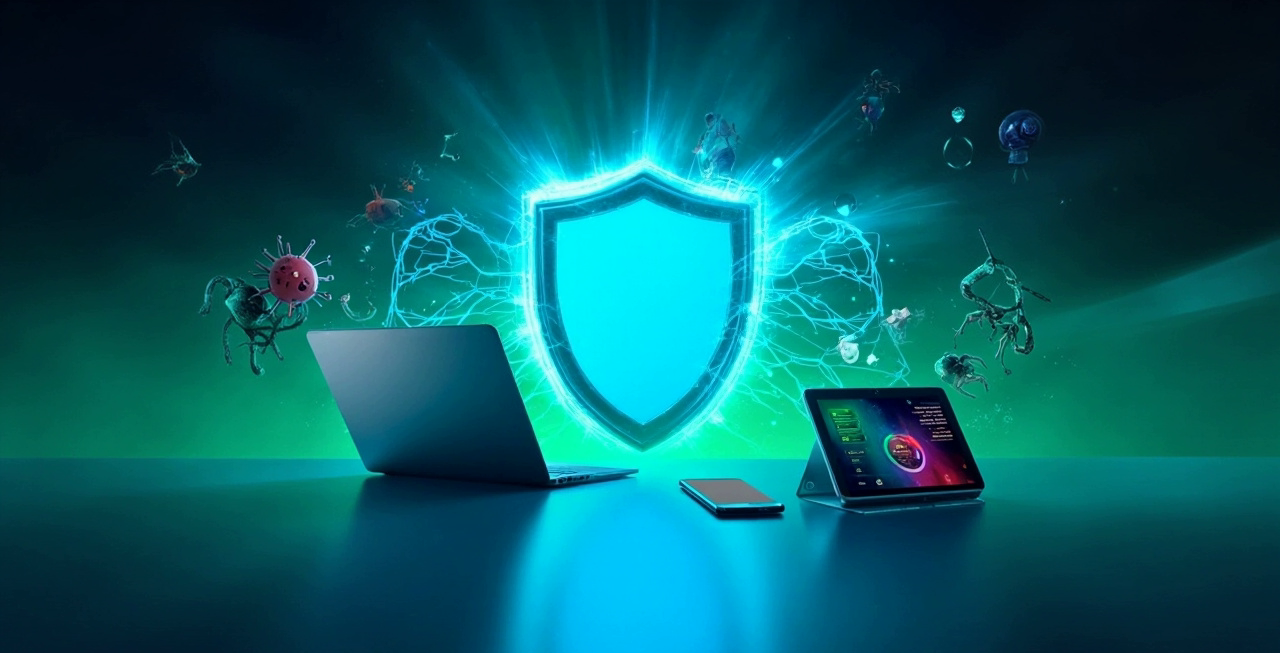
Do you really need antivirus in 2025?
For decades, antivirus software has been the cornerstone of digital security, a seemingly indispensable guardian against the ever-present threat of malware and viruses. But as technology evolves and operating systems become more sophisticated, a question frequently arises: Do you really need antivirus in 2025? With built-in security features in Windows, macOS, and even mobile operating systems, some argue that traditional antivirus is a relic of the past. However, the threat landscape is also constantly evolving, with cybercriminals developing new and more insidious ways to compromise your devices. This article will delve into the current state of digital threats and explore whether a dedicated antivirus solution is still a necessity for comprehensive protection.
The evolving threat landscape
The days of simple, easily detectable viruses are largely behind us. Today, cyber threats are far more diverse and sophisticated. We’re not just talking about viruses anymore; the term “malware” encompasses a wide array of malicious software, including:
Ransomware: Encrypts your files and demands a ransom for their release.
Phishing: Deceptive attempts to trick you into revealing sensitive information, often through fake websites or emails.
Spyware: Secretly monitors your online activity and collects personal data.
Adware: Bombards you with unwanted advertisements.
Rootkits: Designed to gain unauthorized access to a computer and hide its presence.
Zero-day exploits: Vulnerabilities in software that are unknown to the vendor, making them particularly dangerous.
While operating systems have indeed improved their baseline security, they are often designed to protect against known threats and common attack vectors. They may not be equipped to handle the rapid emergence of new, highly targeted, and polymorphic (constantly changing) malware variants.
Built-in security vs. dedicated antivirus
Modern operating systems come with their own set of security tools:
- Windows defender (now Microsoft Defender Antivirus): Microsoft has significantly enhanced its built-in antivirus solution, offering real-time protection, firewall capabilities, and cloud-based threat intelligence. For many casual users, it provides a decent level of protection against common threats.
- macOS gatekeeper and XProtect: Apple’s macOS includes Gatekeeper, which verifies downloaded apps, and XProtect, which scans for known malware definitions. These features, combined with the inherent security architecture of macOS, offer a strong first line of defense.
- Android and iOS security: Mobile operating systems have robust sandboxing features that isolate apps from each other, limiting the damage a malicious app can do. App stores also have review processes to filter out harmful applications.
So, if these built-in tools exist, why would you need a third-party antivirus?
The limitations of built-in solutions
While built-in security is a good starting point, it often lacks the depth and breadth of protection offered by dedicated antivirus software:
- Advanced threat detection: Premium antivirus solutions often employ more advanced detection techniques, including artificial intelligence and machine learning, to identify and neutralize zero-day threats and highly sophisticated malware that built-in tools might miss.
- Broader protection: Dedicated antivirus suites typically offer a wider range of security features beyond just malware detection, such as phishing protection, secure browsing, webcam protection, and parental controls.
- Cross-platform protection: If you use multiple devices (Windows PC, Android phone, Mac laptop), a single antivirus subscription can often cover all of them, providing consistent protection across your digital ecosystem.
- Proactive defense: Many antivirus programs offer proactive defense mechanisms that analyze suspicious behavior and block potential threats before they can execute, rather than relying solely on signature-based detection.
Regular updates and research: Antivirus companies invest heavily in cybersecurity research, constantly updating their threat databases and developing new defense strategies to stay ahead of cybercriminals.
Prevention is key: Best practices for digital safety
Regardless of whether you use a dedicated antivirus, adopting strong cybersecurity habits is paramount. Antivirus software is a tool, but your behavior is your strongest defense. Here are some essential best practices:
Keep software updated: Always install updates for your operating system, browser, and all applications. Updates often include critical security patches.
Use strong, unique passwords: Never reuse passwords. Use a password manager to create and store complex, unique passwords for all your accounts.
Be wary of phishing: Think before you click. Be suspicious of unsolicited emails, messages, or links, especially those asking for personal information.
Backup your data: Regularly back up your important files to an external drive or cloud service. This can save you from data loss in case of a ransomware attack or system failure.
Download apps from official sources: Only download software and apps from trusted, official app stores or developer websites.
Enable two-factor authentication (2FA): Add an extra layer of security to your accounts by enabling 2FA wherever possible.
So, do you really need antivirus in 2025? The answer is nuanced, but for most users, especially those who handle sensitive information, engage in online banking, or simply want peace of mind, a dedicated antivirus solution remains a valuable and often necessary layer of defense. While built-in security features provide a good foundation, they are often not enough to combat the increasingly sophisticated and diverse array of cyber threats. Think of it like this: your operating system provides a sturdy front door, but a good antivirus adds a comprehensive alarm system, reinforced locks, and a vigilant security guard. Coupled with smart online habits, a dedicated antivirus can provide the robust, proactive protection needed to navigate the digital world safely and confidently. Don’t leave your digital life to chance; invest in your security.
